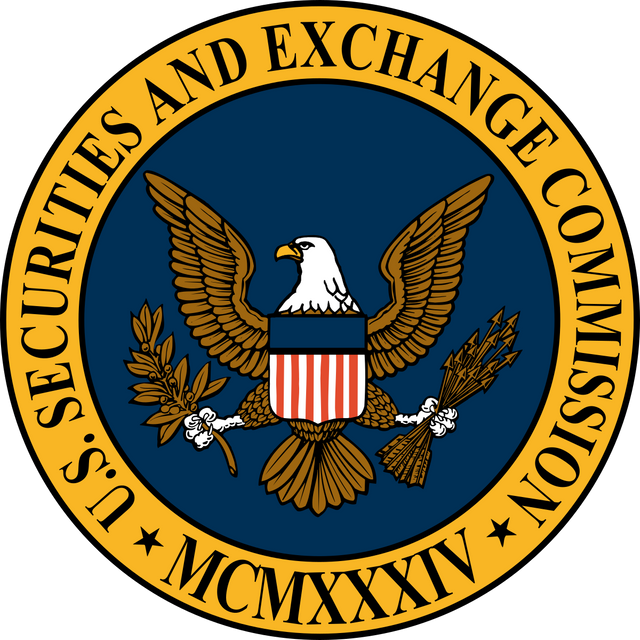Government Regulation Of Cryptocurrency Is Becoming Increasingly Strict Within The USA, And Has Lead To Even More Hurtles For US Cryptocurrency Investors. Let's Take A Look At The Harmful Guidance Issued By The SEC Could Hurt Us All.
While many suspected that regulations would become more prevalent as more money entered the cryptocurrency market, the most recent SEC guidance relating to token distributions make me worried.
While there are still no formal regulations that classify all token distributions as securities or other financial instruments, the SEC released guidelines where they came to the conclusion that these token distributions can be treated like securities in some circumstances. While that may not sound like a big deal, it restricts where individuals within the US can acquire their tokens, because allowing for the exchange of securities is a completely different license in the US than that needed to operate a cryptocurrency exchange. Bitfinex was the only 'major' US based exchange that allowed for individuals in the US to trade in the EOS market, and announced yesterday that as of August 16th EOS trading will no longer be available on the platform for individuals within the US. The SEC issued their latest guidelines on the 26th of July, so the team at Bitfinex likely spent some time trying to figure out a way to continue allowing individuals to trade in EOS tokens.

I am really worried that these guidelines and the actions of US based cryptocurrency companies and businesses may be the start of an era of even more unjust government regulation within the US, where the regulations are not made in the best interests of the people. Cryptocurrency has been on the governments radar for some years now, but there was relatively little and unclear regulation in the cryptocurrency market prior to the past 9 months. The market as a whole has increased from a total market capitalization of 20 billion dollars to currently over 134 billion, so the fact that regulation is beginning to come about more formally and intensely than ever within the US shouldn't be a surprise. Regulations in general may even be helpful to the industry if they were implemented fairly and rationally, but restrictive and oppressive regulation could have a serious negative effect on the advancement of cryptocurrency technologies within the US. While the advancement of the technology couldn't be stopped by anything, the ability for individuals in the US to partake and interact with these networks could potentially be restricted.
The guidance issued in July was specifically in regards to token distributions, and aims to make it nearly impossible for individuals within the US to take part in accordance with the guidelines.
As i'm sure many of you know there have been an overwhelming amount of different ICO's and token offerings over the past several months, and I fear that the most recent regulations were constructed out of fear rather than rationally to protect investors and promote investment. The SEC claims that much of their reasoning and rational behind their guidelines was made from the DAO hack, which took place over one year ago. If you aren't aware of the events of the DAO hack, it was virtually imperfect code that allowed an attacker to exploit a bug and steal nearly 60 million dollars worth of the funds that had been raised during the token distribution. While this type of event can't be predicted or even guaranteed not to happen in the future, it is by no means a sufficient reason to forbid individuals within the US the ability to take part in these token distributions.

The most significant impact that these guidelines have on US investors is in terms of acquiring stake in the upcoming EOS platform, which I am obviously very concerned with. The guidelines do not provide a concrete method for determining whether a token constituted a security, but one of the determining factor is if the purpose of individuals buying the tokens is for the hopes of future profit. I actually read the entire EOS terms of service guidelines when the token distribution period began, and it is quite clear throughout the token description and terms that the ERC20 EOS tokens entitle the holder to absolutely nothing. While formally the ERC20 tokens don't constitute ownership in any context, the 'version' of the EOS platform that is originally launched will undoubtedly include the correct account balances reflected in the genesis block of the live network. While it is understood that this is what is going to happen when the platform goes live, the ERC20 tokens have no formal representation of any ownership in any capacity on any network.
This would make it seem like US individuals would still likely be able to acquire EOS tokens on other cryptocurrency exchanges, but it is still very much a grey area. Bitfinex and other licensed US exchanges likely weren't breaking any laws by allowing the exchange of ERC20 tokens, but they are simply preparing for the regulations that may follow the guidelines. If more formal and defined regulations or guidelines come about that define ERC20 tokens as securities, individuals within the US may be left with very limited options for acquiring stake in the EOS platform legally and in compliance with the rules put forth. Not only is this a huge dis-service to all cryptocurrency investors within the US, but it may also lead to large and institutional investors being more hesitant to invest in these token distributions. Fewer big players being involved in token distributions may even prove to be beneficial for 'medium' sized investors like myself by allowing individuals to acquire the stake at a lower rate than they otherwise would have been able to.
Why does the government suddenly care so much about cryptocurrency investments?
The federal government has disliked Bitcoin throughout its existence, and some states such as New York even went so far as to virtually ban cryptocurrencies in 2013. While the government has always tries to make sure they receive as much tax money from cryptocurrency gains, the regulation surrounding cryptocurrency has been murky and unclear for much of the past several years. Most of the cases where individuals would be arrested or charges for selling cryptocurrencies involved individuals trading in very high volumes and operating as a money launderer, often knowingly. The general feeling has been that if you follow the rules and pay tax on gains as required you would be in accordance with the law, but the classification as securities and other traditional financial instruments in the eyes of the law could present bigger and more difficult circumstances for US based cryptocurrency investors than ever before. Investors in securities cannot simply buy them from anyone, and have to use a platform that is licensed and compliant with US regulation in order to do so.
It is entirely legal and compliant for individuals within the US to purchase tokens through exchanges that are compliant and licensed within the US, but the removal of the EOS market from Bitfinex is definitely a major blow for US investors wishing to acquire more stake in the EOS ERC20 tokens. I have already acquired a good bit of tokens through the Bitfinex EOS/BTC market, but I have every intention of increasing my holdings as time goes on. While there are currently no formal regulations, these guidelines could be foreshadowing of regulations that are approaching in the near future. This does leave me very worried, and has me eager to increase my stake in the upcoming EOS platform faster than I otherwise would have. The development and launch of the EOS platform will likely not be affected by the regulations regardless of what they are, and then the real EOS tokens native to the live EOS network would be treated as any other cryptocurrency is.

The major issue seems to be centered around the tokens which individuals buy in hopes of it increasing in value and leading to profit, which just happens to be terrible timing considering we are still at the early stages of the EOS distribution period. The overall investment that the EOS token distribution contract raises will likely be relatively unaffected, because most of the big investors have the resources and means to legally participate in the token distribution. Whether they live outside of the US or utilize a company that resides outside of the US, most of the large value investors would be able to make adjustments to their strategy relatively easily. This leaves medium and small sized investors confused about what to do, and without the resources to consult the required amount of formal legal advice. While the most recent guidelines target token distributions specifically, regulation would be likely to expand once the first cryptocurrency regulations were formally changed or implemented.
The overall consequence of these types of oppressive regulations and guidelines will likely not be validated for numerous years, but the US government is undoubtedly doing their citizens and businesses a dis-service through this type of regulation. While the US government enacting oppressive regulation is nothing new or surprising, it validates the fundamental reason that we need these blockchain networks to limit the ability of government's to enact and enforce oppressive actions into the future.
I really hope that you enjoyed this post, and I urge you to leave any comments, questions, input, ect. in the comments below. Thanks for the support and for reading!
SEC guideline information: https://www.sec.gov/litigation/investreport/34-81207.pdf
What I am unsure about is that currently in the USA uncredited investors can invest up to 10% of their income in equity startups. Why are we locked out of ICOs then?
I'm wondering if the SEC's press release was largely misinterpreted. In the case of the DAO in particular, profits were promised to those who participated, if I'm not mistaken. I think the SEC's stance is to prevent ICOs from being used to launch new securities, not to discourage new ICOs from being launched.
Though, they did mention that it had to be done on a "valid fundraising portal," which BitcoinTalk is certainly not. Sigh.
Overreach in regulation is such a huge problem. It would be great if Trump stepped in, but hey...probably not.
I'm really worried that any further formal regulation and restrictions could hinder businesses and individuals ability to utilize all that blockchain technology will have to offer. Bitfinex must have felt very confident in the need to de-list all ERC20 tokens, because they have a significant interest in the success of the EOS project specifically.
Any time the govt. gets involved in anything (with the exception of war and extorting money) it screws it up beyond recognition. We can probably expect the same when it comes to crypto trading!
I think Trump is looking for a way to end the Fed....thereby giving the Rothschilds a punch in the gut. You can't just do this. Crypto's is a way to end the corrupt banking systems and the bankers with it. I believe Trump will do everything he can to promote in whatever way he is allowed to by law cryptocurrenies.
Nice post @cryptofreedom
It really is a shame, but the is the US of A for ya. Crypto is a power shifting tech... and the powers that be know this. They will make it hard for the shift to occur; however, all they can do is delay it...not prevent it.
This is very bad for people over there. Bitcoin must not be regulated to fulfil it purpose .
A well written post . I always thought the Donald would use crypto growth to wipe out his personal debt . Theres still time though .
I'm never paying taxes on crypto
Where should I be moving my EOS? It doesn't appear that they can be stored in a paper wallet. The COO of Exodus doesn't recommend storing them there. Thoughts?